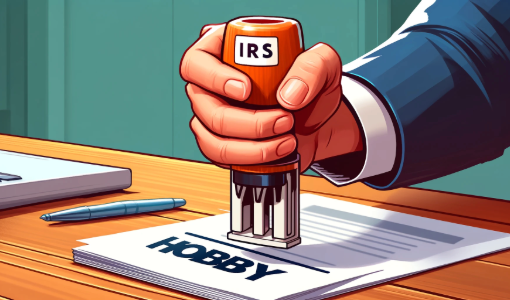SUMMARY The IRS distinguishes between hobbies and businesses based on profit motive and specific criteria, impacting tax obligations. Key factors include how the activity is conducted, the expertise involved, the time and effort invested, income history, occasional profits, and financial reliance. If an activity makes a profit in at least three of the last five years, it’s generally considered a business. Classification affects the ability to deduct expenses, with businesses able to deduct ordinary and necessary expenses, while hobby deductions are limited and currently suspended. Understanding these rules helps small business owners remain compliant and optimize their tax situation.
Why the IRS Might Classify Your Small Business as a Hobby
If you’re a small business owner, understanding why the IRS might classify your venture as a hobby rather than a legitimate business is crucial. This distinction can significantly impact your tax obligations and financial planning. Here’s a concise overview of the key factors and implications.
Key Factors for Classification
The IRS focuses on whether your activity is pursued with a profit motive. Here are the primary criteria:
1. Profit Motive: This is the most critical factor. The IRS evaluates several aspects:
Manner of Operation: Professional conduct and thorough recordkeeping indicate a profit motive.
Expertise: Demonstrating knowledge in your field supports your business status.
Time and Effort: Significant investment of time and effort suggests a business.
Income History: A history of income or profits indicates a profit motive.
Occasional Profits: Even infrequent profits can support your business claim.
Financial Status: Reliance on business income for livelihood supports the business classification.
Personal Pleasure: Significant personal enjoyment might indicate a hobby, but it’s not conclusive if other factors suggest a business.
2. Profit in 3 of 5 Years Rule: If your activity has made a profit in at least three of the last five tax years, it is generally presumed to be a business. For activities involving horses, this rule extends to two of the last seven years.
Why the Distinction Matters
The classification affects how income and expenses are reported for tax purposes:
Business Expenses: If classified as a business, you can deduct ordinary and necessary expenses on Schedule C (Form 1040), reducing your taxable income.
Hobby Expenses: If classified as a hobby, expenses can only be deducted up to the amount of income generated from the hobby. Under the Tax Cuts and Jobs Act, these deductions have been suspended for tax years 2018 through 2025.
Implications for Small Business Owners
1. Tax Liability: Being classified as a hobby can increase your tax liability because expenses that exceed income cannot be deducted, resulting in higher taxable income.
2. Scrutiny and Compliance: Maintain good records, demonstrate a profit motive, keep detailed books, have a business plan, and show consistent efforts to make the business profitable to avoid being classified as a hobby.
The IRS’s focus on this classification ensures that taxpayers do not improperly use hobby expenses to offset other income and reduce their tax liability unfairly. Understanding these rules helps you remain compliant and optimize your tax situation.
Navigating the IRS’s classification rules is essential for small business owners. By demonstrating a clear profit motive and maintaining professional practices, you can ensure your activity is recognized as a business, maximizing your potential tax benefits and ensuring compliance. Keep detailed records, operate professionally, and consistently work towards profitability to solidify your business status.

